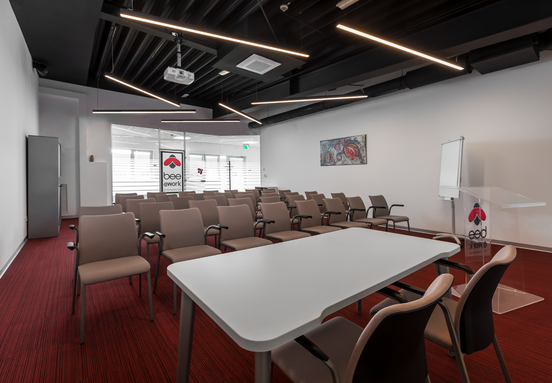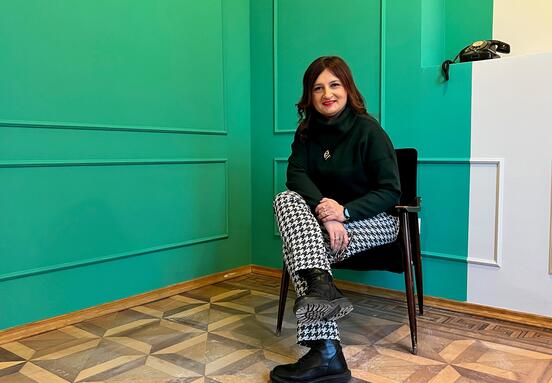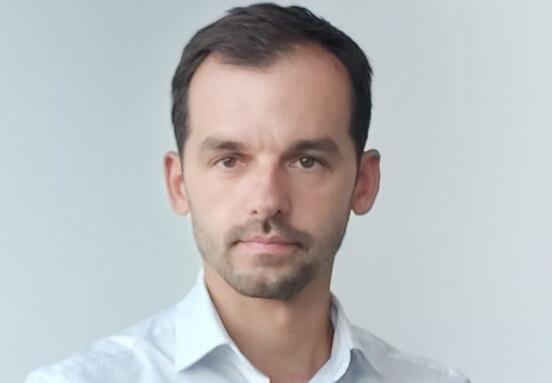1. Tell us a bit more about your startup, what exactly do you do?
Flow and Form is a digital agency specializing in the development of applications, which help property owners and operators to improve the way they manage and experience the use of their buildings and other facilities.
We started operations in 2017, and during that period we helped several technology companies around the world to market their proptech products. With our clients, we have found a lot of success in developing desktop booking applications and analyzing workspace utilization in organizations like Amazon and Netflix.
The company currently has 20 employees with its main office in Zagreb, and in the future we plan to publicly present our own products for commercial and residential buildings.
2. Looking globally, PropTech experienced a real boom during the pandemic. Some new apps have appeared. Do you believe this trend will continue after the pandemic?
Proptech is definitely on the rise looking at the growth of private equity in proptech companies and the number of start-ups looking to enter the market.
The pandemic has prompted many space owners and operators to think about the new needs of their tenants, especially in the office space. But these needs existed even before the pandemic, and this pandemic only accelerated the process of what I think would happen anyway.
I think that this trend will certainly continue after the pandemic because the way we work and live is changing, so the physical space in which we live will take on new meaning and new functionalities.
3. Your review of the real estate sector in the Republic of Croatia? In 2020, one of the largest coworking offices in this part of Europe opened in Zagreb. How can PropTech tools help improve coworking business development services?
The residential real estate market in the Republic of Croatia remains very dynamic because even in the pandemic we saw an increase in prices, a drop in interest rates on housing loans, and several interesting projects such as VMD Park Kneževa with over 120 new apartments. While the quality of housing is taking on a new meaning, the need for quality housing is growing in the west, and I think that the same trend will continue in the Republic of Croatia with a slight delay.
Although the pandemic affected the business real estate market the most, the price did not vary much depending on the location, and the plans of larger organizations in Zagreb have changed, so we could see more new business and coworking space projects.
I am extremely glad that we now have a large and beautiful coworking space in Zagreb that offers a new model of flexibility to individuals, workers and companies.
Coworking spaces attach a lot of importance to the user experience within the space, and we are already convinced that technology can drastically improve the user experience.
Therefore, I believe there are two main ways that technology can help: 1. Improving usability and space occupancy. 2. Improving the user experience of the space.
The solutions we saw as a successful move of coworking space in the world were the implementation of an application for booking workspace such as tables, conferences and other rooms where users can book and pay for their space in real time through the application. A useful addition to this is the installation of sensors to monitor the usability of the space in real time because this way we can automate the reservation and cancellation of table reservations, and also provide information to owners on how the space is used, which days and which places are most represented. Such applications also offer the ability to find people of interest in the space, a channel for communication with customers, ordering and charging for additional services and many other features that improve the user experience and help owners make better decisions.
4. Do you believe that new concepts of work and new concepts of business will lead to changes in renting business premises?
Definitely! Business spaces take on different meanings and people create different expectations than just space. I think that the view of business space is changing in the direction of providing quality service in addition to space, where before only the location and the space itself were important. Expectations from business space owners will be significantly higher, as an example, several business space owners in the U.S. have already provided a private daycare for the children of space employees to improve their service. In other examples, the concept of the promotional space has completely changed, so that CloudKitchen allows small restaurants to rent a kitchen intended for delivery cheaply and quickly.
This changes the dynamics of rental periods and contracts that were previously fixed at a minimum of 5 or 10 years, while we already see a lot of flexibility requirements where contracts are defined for shorter periods such as a couple of months or a year. I believe that for this reason, the monthly payment or “subscription” billing model will gain popularity in the future.
5. Future trends? How will technology affect the development of the real estate market? What are the positive aspects of these changes?
In the future, we will change some of the oldest tools and concepts related to real estate, this will include changing everything from using physical keys to the way we buy and pay for the use of space. What exactly will it look like in the end? I don’t know, but what I do know is that physical objects (in this case real estate) will adapt to the fact that we all now have technology in our pockets, and will allow us complete control and a different experience of the space we live and work in. Houses, buildings, business and housing will be smarter, and the race to build such spaces has just begun, all over the world.
I believe the real estate industry has made the world’s largest contribution to the climate crisis. Real estate is the largest asset class in the world and one of the largest sectors of the global economy. Therefore, it should come as no surprise to learn that the sector consumes about 40% of the world’s energy, emits 30% of all greenhouse gases and consumes 40% of all raw materials.
Given this reality, as the global community harmonizes culturally, economically, and politically around tackling climate change, real estate is likely to take center stage. I believe that the people who manage global real estate assets - valued at around $ 50 trillion - are therefore one of the most important decision-making groups in the world that will be part of this urgent conversation.
I am pleased that investment in real estate decarbonisation has quadrupled this year, that major decarbonisation decisions have been made in the US, Europe and other countries on a political and economic level, and I look forward to seeing results in the future.
I believe that we all have a responsibility, and especially those of us who are in the technology sector - where we are laying the foundations for the future of real estate, we need to think about what kind of world we will leave behind.
Therefore, I believe that new trends and a new “mindset” in the real estate industry will make a positive, “green” impact on the world around us.







